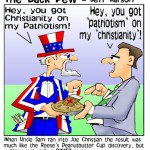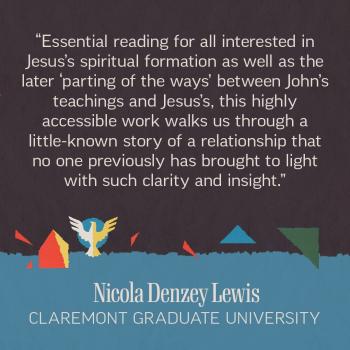Conor Cunningham’s book Darwin’s Pious Idea is an impressive effort, aimed at challenging the shared view among fundamentalists (whether religious or atheist) of what the implications are of Darwin’s theory of evolution. I am grateful to Eerdmans for having sent me a gratis review copy.
The book begins by problematizing the essentialization of many aspects of and concepts related to biological evolution that are in reality quite blurry: the self, the species, and the gene get particular attention. A key concern early on is to make clear that, far from there being one monolithic understanding of evolution and its philosophical implications (represented by Dawkins and Dennett), there is significant diversity in relation to both, with many fascinating unanswered questions. All along the way, Cunningham offers insightful observations, such as when he points out the inherent “gnosticism” of the view that evolution and religion are incompatible, based as it seems to be on the assumption that matter – and thus material explanation and processes – are antithetical to spirituality (p.133).
The term “gnostic” gets bandied about a bit too frequently. But Cunningham’s overall point appears to be a valid one, and that is that ultra-darwinism of the kind Dawkins and Dennett promote is self-defeating. Cunningham tells the story of someone criticizing Frederick Temple, the Archbishop of Canterbury, saying he only believes as he does because he was brought up to. Temple responded that his critic only belived this about him because that is what he was brought up to believe (p.255). The attempt to engage in reductionist philosophy is self-contradictory. Cunningham compares new atheists to tea totalers: the abuse of either religion or alcohol does not provide proof that total abstinence is the best response (pp.272-3).
Cunningham’s book ranges not only across philosophers, neuroscientists, and theologians, but also biblical texts and church fathers. It can at times be meandering and repetitive. And yet even in its repetitions, its central points are made in new and striking ways, and so I found it managed to remain engaging for the most part. In concluding the enormous volume, Cunningham writes, “when it comes to their ‘theology’ (for the creationist) or their ‘atheology’ (for the ultra-Darwinist), it is easier for a camel to get through the eye of a needle than for beauty, truth, goodness, and indeed a person to get into their respective kingdoms, not to mention hesitation, complication, and doubt” (p.421).
Darwin’s Pious Idea is not an easy volume, and so this isn’t an ideal book to share with your average young-earth creationist. Indeed, it is aimed much more at the use of evolution by atheists than in the opposite direction. But in providing this case, it illustrates the falsity of the central claim of young-earth creationists, namely that evolution and atheism are natural allies, inherently intertwined. And so, in atkonsponse to our primary focus in this review series, perhaps Cunningham’s most important contribution is to have demonstrated that YEC, in addition to being wrong about the Bible, science, theology, and philosophy, is also wrong about atheism as well.














